There are plenty of ways to spend warm sunny days in Canada, and boating is one of them. While you can always rent a boat for the day, having your own provides you with the flexibility to take it out as often as you wish without the hassle of checking availability or working around rental schedules.
The thing is, boats are not cheap. You could be spending more for a boat than you would for a car. The good news is that the ticket price doesn’t have to stop you from buying a boat. Fortunately, there are financing options available to help you cover the cost of a boat purchase.
Key Points You Should Know About Boat Financing
- Boat financing is available from a variety of lenders, including banks, credit unions, private lenders, and alternative lenders.
- All types of boats can be financed, including sailboats, motorboats, fishing boats, and pontoons, among others.
- To keep the cost of financing a boat low, consider purchasing a used boat, making a bigger down payment, and shopping around for a lower rate.
- Before applying for boat financing, consider the loan amount, interest rate, loan term, and down payment.
Can You Finance A Boat?
Yes, financing options are available to help you cover the cost of a boat purchase. Having said that, a new versus used boat will determine the specifics of your financing arrangement.
Interest Rates
- New Boats: Typically have lower interest rates because they’re considered less risky for lenders and hold their value longer.
- Used Boats: Generally have higher interest rates due to the increased risk of repair issues and shorter life spans.
Loan Terms
- New Boats: Often come with longer loan terms, which can result in lower monthly payments.
- Used Boats: May have shorter loan terms.
Down Payment
- New Boats: May require a larger down payment due to the higher purchase price.
- Used Boats: Usually require a smaller down payment.
Depreciation
- New Boats: Depreciate quickly, losing a lot of value in the first few years.
- Used Boats: Rate of depreciation is generally slower because they’ve already depreciated quite a bit in the first few years.
Warranty Coverage
- New Boats: Typically come with a manufacturer’s warranty.
- Used Boats: Limited or no warranty, depending on the age of the boat.
Boat Financing Features
There are key features involved in financing a boat, including the following:
| Loan Amounts | Boat financing is available for a wide range of loan amounts, typically for up to $200,000, depending on the lender and your financial health. |
| Interest Rates | The rate you’re offered varies greatly depending on the boat, the lender, the loan term, your income, and your credit score. Used boat financing rates may be higher than rates for new boats. |
| Loan Terms | Loan terms for boat financing can be up to 20 years, making monthly payments more affordable. |
| Down Payments | Lenders typically require a down payment of anywhere from 10% to 20% of the purchase price. |
Ways You Can Finance A Boat
- Secured Financing For Boats – Similar to other vehicle-based financing options, most boat and marine loans will be secured by using the craft’s title as collateral. This means that the lender will retain ownership over the vessel’s title until your repayment plan is complete.
- Marine Brokers – In most parts of Canada, you’ll find a number of brokers that can connect you with sellers for both new or used boats. A good marine broker can help you locate your desired vehicle and represent you through negotiations with sellers. They may also be able to find you affordable financing plans or hold your deposit securely in escrow.
- Marine Dealer Financing – Since our country has so many bodies of water, boat and marine vehicle dealerships aren’t too hard to come by either. So, not only can most marine dealers offer you loan options, you’ll have the opportunity to check out your potential watercraft up close. Most marine dealers work with one or more lenders to acquire financing for their clients. Although negotiation may also be possible here, always get a proper price quote from your dealer before you buy, as hefty vehicle preparation fees could be applied.
Best Powersports Lenders
| Provider | Powersport Vehicles | Available Terms | |
|---|---|---|---|
 Loans Canada |
| Up to 60 months or longer | Learn More |
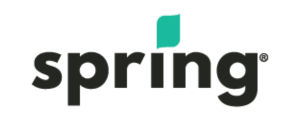 Spring Financial |
| Up to 84 months | Learn More |
 LendCare |
| Up to 180 months | Learn More |
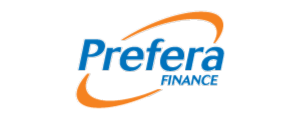 Prefera Finance |
| N/A | Learn More |
 All Pro Financing |
| Up to 20 years | Learn More |
 Fairstone |
| Up to 36-120 months | Learn More |
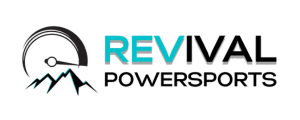 Revival Powersports Financing |
| Up to 20 years | Learn More |
 Canada Powersports Financing |
| N/A | Learn More |
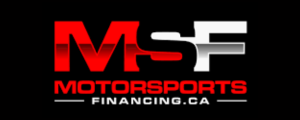 Motorsports Financing |
| Up to 180 months | Learn More |
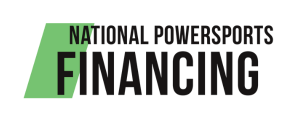 National Powersports Financing |
| N/A | Learn More |
 Breeze Powersports Financing |
| N/A | Learn More |
 TD Bank |
| Up to 84 months | Learn More |
 Desjardins |
| Up to 20 years | Learn More |
 Scotiabank |
| Up to 20 years | Learn More |
 RBC |
| Up to 20 years | Learn More |
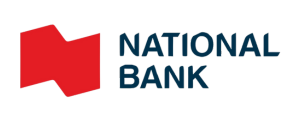 National Bank Of Canada |
| Up to 240 months | Learn More |
Is Manufacturer’s Financing Available For Boats?
Many manufacturers don’t offer direct financing for boats and instead work through their dealership and financial institution partnerships. However, you may find direct financing through certain manufacturers such as Yamaha.
| Manufacturer | Financing Details | |
| Yamaha | Direct financing offered through Yamaha Motor Finance Canada Ltd. | Learn More |
How To Apply For Boat Financing In Canada
Follow these steps to apply for boat financing:
Step 1: Assess Your Finances
You should have a clear understanding of your financial situation before you start your search for a boat. This is where a detailed budget comes in handy.
It’s important to understand how much money you have available after all your current bills are paid to dedicate to the purchase of a boat. You should also consider all expenses related to owning a boat in addition to the purchase price.
Step 2: Find A Lender
You can apply for boat financing directly through the boat dealer or from a bank or lender that offers boat financing. When searching for a lender, consider the following:
- Loan Preapproval: Getting pre-approved with several lenders will help you compare loan offers and find the cheapest rates.
- Loan Terms: Consider whether you want a short or long loan term based on what you can comfortably afford each month. Then, see which lenders can offer you the loan terms that suit your needs.
- Down Payment Requirements: Depending on your credit score and the loan amount, your down payment requirement may vary, though you may need as much as 20%.
- Credit Score Requirements: Conventional lenders typically require good credit, while alternative lenders may be more flexible when it comes to credit score requirements.
Step 3: Gather Documents
You’ll need to submit various documents along with your application form:
- Proof Of Income: Recent pay stubs, tax returns, and bank statements.
- Proof Of Employment: Letter of employment from your employer.
- Photo ID: Driver’s license or passport.
- Credit Information: Your consent is required for lenders to pull your credit report.
- Boat Details: Price, make, model, age, and condition.
Step 4: Fill Out The Application
Complete the lender’s loan application and submit all required documents along with it.
Step 5: Review The Loan Contract
Look over the loan agreement and all the terms within it. Make sure you understand everything before signing. If everything looks good, sign it, then get access to the funds to buy your boat.
| Do I Need A Special Boating License To Get Boat Financing? No, you don’t need a special boat license to apply for boat financing. However, you will need a Pleasure Craft Operator Card (boating license) to legally operate a boat. |
Can You Finance A Boat With Bad Credit?
Yes, you can finance a boat even with bad credit. While you may not qualify with a traditional bank, there are many private and alternative lenders that specialize in providing boat loans to those with low credit scores. It’s important to compare offers from several lenders to find the best rates and terms.
Keep in mind that applying with bad credit will likely mean that your loan will be more expensive. Lenders often charge higher rates to offset their risk.
Can I Get A Boat If I’ve Declared Bankruptcy?
Yes, it may be possible to get boat financing even if you’ve declared bankruptcy, but it can be much more challenging. You may have some trouble finding a lender who will provide you with financing while you’re still in the midst of bankruptcy.
Otherwise, you may have to wait until you’ve been discharged. Even then, it will take some time to repair your credit score, which is something to consider before you apply for boat financing. If you’ve declared bankruptcy, you may want to apply with a private or alternative lender that specializes in financing for those in bankruptcy.
Can I Get A Boat If I’ve Filed A Consumer Proposal?
Yes, you can still get a boat loan even if you’ve filed a consumer proposal, but like bankruptcy, it may be more difficult. Considering the credit impact of a consumer proposal, you may have a harder time getting approved from a traditional lender. As such, you’ll have better luck applying with a private or alternative lender.
Further, you’ll likely face higher interest rates due to the increased risk for the lender. You may also be asked to make a larger down payment to offset the lender’s added risk.
Learn more: Can I Get A Loan While In A Consumer Proposal?
How Much Will Your Boat Cost You?
The purchase price of a boat can range widely, from as little as a few thousand dollars for a simple used boat to well over $100,000 or more for a more luxurious model. Ultimately, the type of boat you buy and its age and condition will determine how much you pay.
You’ll also need to consider the cost of the boat loan itself. The cost of financing depends on a few factors, such as the following:
- Interest Rate: A lower rate can save you thousands of dollars over the life of the loan. You may be able to snag a lower rate on your boat financing by coming up with a larger down payment and applying with a good credit score.
- Loan Term: The longer your loan term, the smaller your monthly payments will be, which can make your loan more affordable. However, longer terms typically mean more interest paid over the life of the loan.
- Down Payment: The more money you can put down on your boat, the smaller the loan you’ll require.
Leasing Vs. Financing A Boat
To help you decide between leasing and financing a boat, you should weigh the pros and cons of each option to determine which one suits your needs best.
Leasing A Boat
Leasing a boat typically involves a short-term arrangement of payments in exchange for the use of the boat without ownership commitments. Here are the benefits and drawbacks of leasing a boat:
Pros
- Lower Monthly Payments: Leasing typically comes with lower monthly payments compared to financing.
- Newer Models: You can trade in your leased boat every few years for a newer model.
- Less Maintenance: Lease contracts often cover the costs of maintenance and repair.
Cons
- No Ownership: You don’t own the boat when the lease term ends, unless you agree to buy it.
- Restrictions: There are typically restrictions that come with how much you can use the boat, including mileage limits.
Financing A Boat
Boat financing involves taking out a loan to buy a boat, similar to a car loan. Here are the perks and downsides of financing a boat:
Pros
- Ownership: Financing a boat allows you to own it once the loan is paid off.
- Unlimited Use: There are no restrictions on how often you use the boat and how much mileage you put on it.
- Customization: You’re free to modify the boat as you like without restrictions.
Cons
- Higher Monthly Payments: Boat financing typically comes with higher monthly payments compared to leasing.
- Maintenance Costs: Since you own the boat, you’ll have to cover all maintenance and repair costs.
Loans Canada Can Help You Find Boat Financing In These Provinces
- Ontario
- Alberta
- Quebec
- British Columbia
- Nova Scotia
- Manitoba
- Saskatchewan
- New Brunswick
- PEI
- Newfoundland and Labrador
Types Of Boats You Can Finance
You can finance all sorts of boats, including the following:
- Fishing boat – A boat specifically designed for catching fish in oceans, rivers, or lakes. They vary widely in size and design.
- Bass boat – A type of small boat specifically designed for bass fishing.
- Jet boat – A type of boat that’s propelled by a jet of water from the back of the boat, instead of by traditional propellers.
- Pontoon boat – A flat-decked recreational boat that relies on flotation devices to stay afloat.
- Sailboat – A boat that’s propelled mainly by sails, which catch the wind to move the boat.
- Catamaran – A type of boat that’s characterized by parallel hulls that are connected by a deck or a framework.
- Deck boat – A type of recreational boat designed with a wide deck area with lots of space for passengers and activities.
- Bow rider – A type of recreational boat designed with an open bow area with additional seating.
- Runabout – A small motorboat typically used for short trips on lakes, rivers, and coastal waters.
Additional Factors To Consider When Purchasing A Boat
Aside from the initial costs of buying and financing a boat, other considerations should be made, including the following.
Do You Need A Special License To Drive A Boat In Canada?
Yes, you need a special license to drive a boat in Canada, which is known as the Pleasure Craft Operator Card (PCOC). This shows that you’re capable of operating a power-driven boat. To get a PCOC, you must pass a boating safety test.
How To Insure A Boat In Canada
You’re not required to have boat insurance in Canada. However, it’s highly recommended. With an insurance policy in place, you’ll be protected against potential liabilities, such as theft of your boat, damage to other boats, and injury to passengers.
If you choose to insure your boat, you can buy a policy from one of many insurers in Canada, such as Aviva Canada and Intact Insurance, among others.
Boat Maintenance Costs
The cost of operating and maintaining your boat can rival the cost of monthly financing payments. Here are a few of the more common costs you may incur to maintain and operate your boat:
- Engine Service: Oil changes, tune-ups, and other engine services are required every year to keep your boat running smoothly.
- Hull Cleaning: This involves removing algae and other marine growth from the bottom of the boat.
- Gas: Consider how much you’ll spend fueling your boat, which can vary greatly depending on how often you use it.
- Winterization: Preparing your boat to be stored in the winter involves draining fluids and protecting it from the elements.
- Storage: If you don’t have room on your property to store your boat, you’ll have to pay to have it stored. You can store it in a garage or marina, depending on what’s available near you and your budget.
Given all the extra costs associated with operating and maintaining your boat, you could easily spend a few thousand dollars a year on top of your monthly financing payments.
Boat And Marine Vehicle Licensing Rules
Before you try to finance a boat, it’s essential to understand that some marine vehicles with motors require special licenses to operate. For example, you need a valid Pleasure Craft License to legally pilot any boat with an engine of 10 or more horsepower. You must have the license on you whenever you’re driving the vehicle to avoid penalties.
There are certain elements that the boat itself needs as well, including:
- Hull Serial Number – The boat must have a serial number on its hull, which proves that it meets Canada’s minimum safety standards for construction.
- Registration – Any qualifying boat also needs to be registered with the Canadian Register of Vehicles to confirm that it’s not been stolen or manufactured poorly.
- Trailer Registration – According to government regulations, most boat trailers are deemed as motor vehicles, so they have to be registered and licensed too.
- Canadian Compliance Notice – This is another way to identify a boat’s build quality. While boats bought from other countries may not require this notice, they must still comply with Canada’s minimum construction standards before being used.
